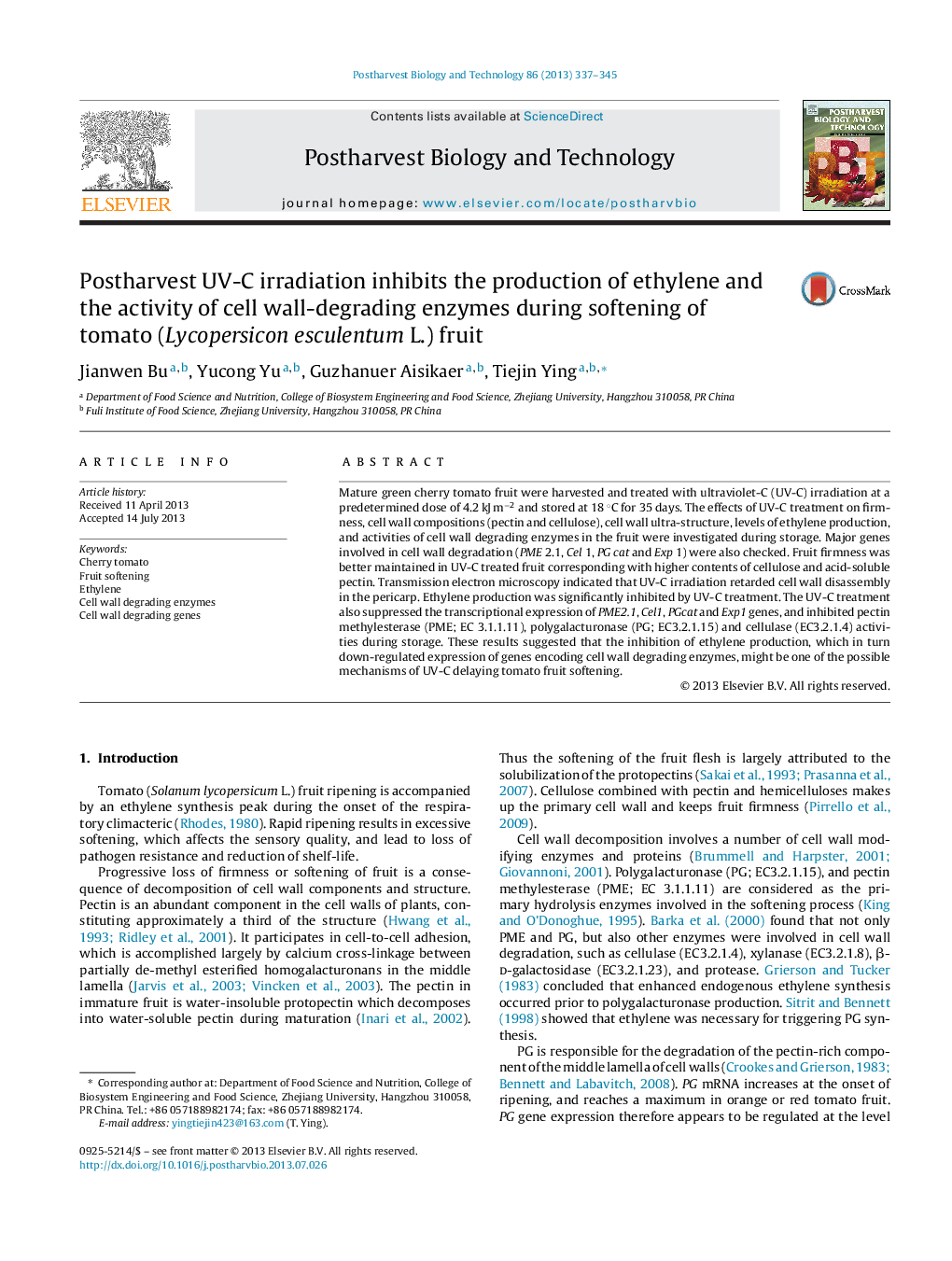| Article ID | Journal | Published Year | Pages | File Type |
|---|---|---|---|---|
| 6378783 | Postharvest Biology and Technology | 2013 | 9 Pages |
â¢UV-C light inhibited ethylene production and delayed tomato fruit softening.â¢PME and cellulase may be a mechanism of the UV-C effects in delaying softening.â¢PG enzyme played a less significant role in cell wall degradation.â¢Inhibition of ethylene production might be one of the mechanisms of UV-C treatment in delaying tomato fruit softening.
Mature green cherry tomato fruit were harvested and treated with ultraviolet-C (UV-C) irradiation at a predetermined dose of 4.2 kJ mâ2 and stored at 18 °C for 35 days. The effects of UV-C treatment on firmness, cell wall compositions (pectin and cellulose), cell wall ultra-structure, levels of ethylene production, and activities of cell wall degrading enzymes in the fruit were investigated during storage. Major genes involved in cell wall degradation (PME 2.1, Cel 1, PG cat and Exp 1) were also checked. Fruit firmness was better maintained in UV-C treated fruit corresponding with higher contents of cellulose and acid-soluble pectin. Transmission electron microscopy indicated that UV-C irradiation retarded cell wall disassembly in the pericarp. Ethylene production was significantly inhibited by UV-C treatment. The UV-C treatment also suppressed the transcriptional expression of PME2.1, Cel1, PGcat and Exp1 genes, and inhibited pectin methylesterase (PME; EC 3.1.1.11), polygalacturonase (PG; EC3.2.1.15) and cellulase (EC3.2.1.4) activities during storage. These results suggested that the inhibition of ethylene production, which in turn down-regulated expression of genes encoding cell wall degrading enzymes, might be one of the possible mechanisms of UV-C delaying tomato fruit softening.
